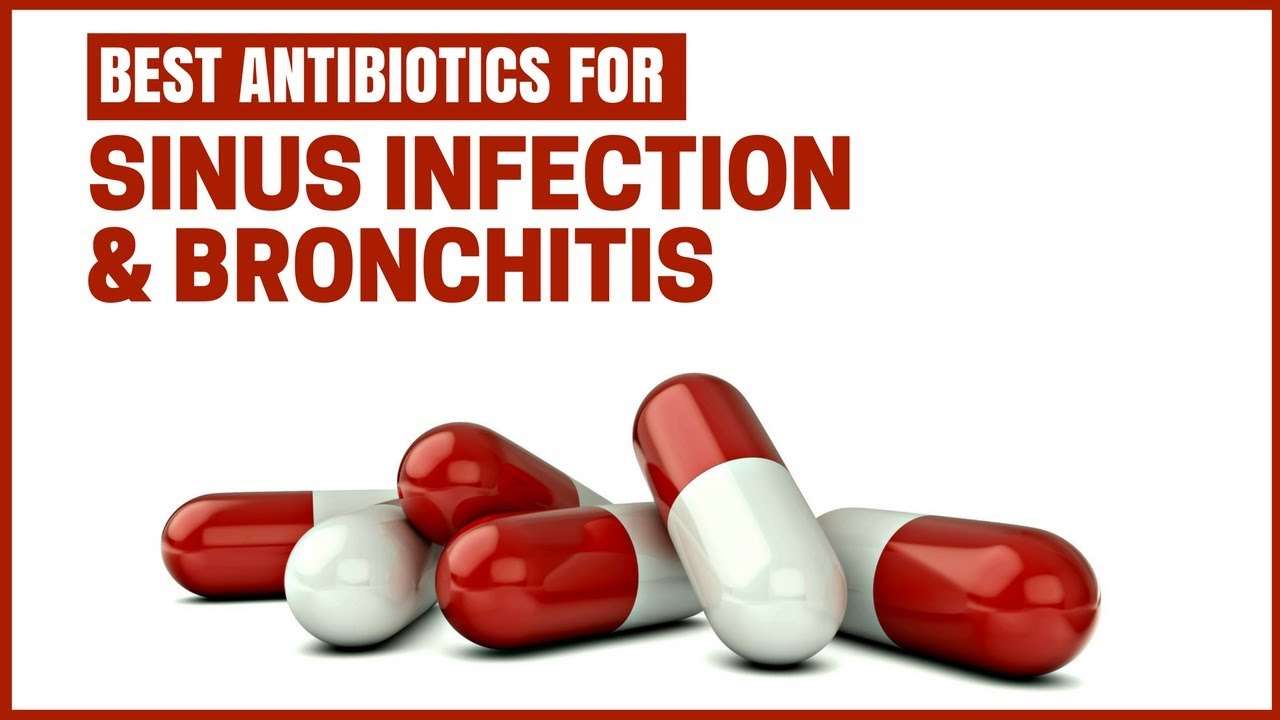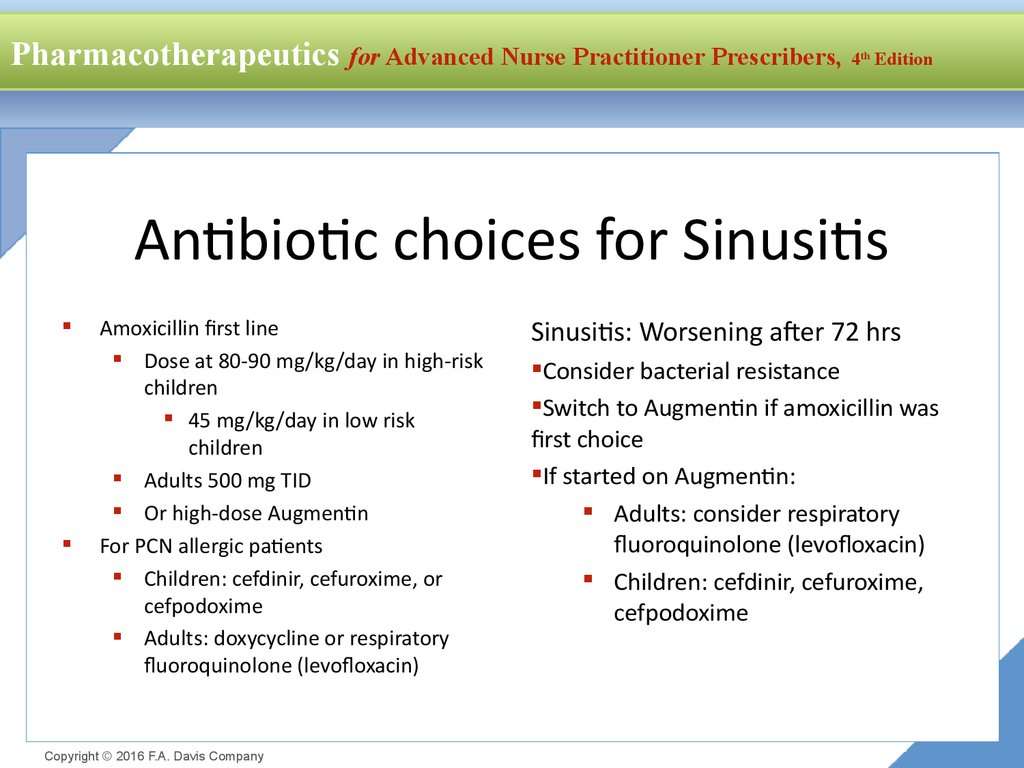Ways To Recognize Serious Signs Of Sinus Infections
#1: Duration
The length of the infection is an important determinant of the seriousness of the infection.
I usually consider most infections less than 3 weeks to be viral or inflammation related to congestion. At this point, the best treatment is usually medications that decrease the congestion and inflammation. This in turn will alleviate the symptoms and ultimately cure the illness.
When the illness continues beyond 3 weeks, bacterial infection can begin to develop. Though antibiotics can be considered at this point, other treatments may still be the best answer if they have not yet been given a try.
#2: Mucous Color
I will dispel a myth right here and now. Yellowish/greenish mucous does not necessarily mean the infection is bacterial.
Viruses can cause the same color mucous. The reason for the mucous is generally not the actual bacteria or virus, but the bodys immune response to the intruder.
So dont worry just because you see a colored mucous when you blow your nose. This will also improve as the infection abates.
#3: Sinus Pain
Sinus pain can occur anytime throughout a sinus infection. This is normal and means there is inflammation in the sinuses, as we discussed previously.
However, severe pain, redness over the skin, hardened skin over the sinuses, or even a severe headache are not generally normal and can indicate a bacterial infection.
#4: Fever
A fever can be caused by both viruses and bacteria. So how do you differentiate between the two?
How Can You Keep From Spreading A Sinus Infection
Try incorporating these common sense practices to keep from spreading your sinus infection.
- Wash your hands! This seems basic, but it always bears repeating. Handwashing really is the best way to prevent the spread of germs! Be sure to wash with soap and water before handling food, after using the restroom, and especially after blowing your nose or touching your face.
- Cover your cough! Feeling a tickle in your throat? Turn away from those around you and cough into the crook of your elbow. This prevents germs from getting all over your hands while still stopping droplets from spreading.
- Stay home when possible. Even though it takes pretty close contact to spread a sinus infection, staying home and getting rest can help you get back to your normal routine as soon as possible.
- Get better faster. Try using home remedies like over-the-counter medications or a neti pot to help speed up your recovery. In fact, one study in children showed that nasal irrigation was almost as helpful as antibiotics in clearing up sinus infections!
How Long Do Antibiotics Take To Work On Sinus Infections
Often, sinus infections are treated with antibiotics. However, your doctor will determine the best treatment based on the root cause of your sinus infection. If antibiotics are prescribed, you may want to know how long it will be before you start to experience relief from symptoms.
Read on to find out how sinus infections are diagnosed, when your doctor may prescribe antibiotics, and how long it will take antibiotics to take effect.
Don’t Miss: How To Care For A Sinus Infection
Dont Rush To Antibiotics
The sinuses are small, hollow spaces inside the head. They drain into the nose. The sinuses often cause problems after a cold. They can also cause problems if they get blocked up from hay fever and other allergies. The medical name for sinus problems is sinusitis.
Sinus problems can be very uncomfortable. You may feel stuffed up. You may have yellow, green, or gray mucus. And you may feel pain or pressure around your eyes, cheeks, forehead, or teeth.
Each year, millions of people use antibiotic drugs to treat sinus problems. However, they usually do not need antibiotics. Heres why:
When And Why You Might Need An Antibiotic For A Cold

Daniel More, MD, is a board-certified allergist and clinical immunologist with a background in internal medicine.
Any given adult will get a cold at least a couple of times a yearusually in the fall and winter. Kids can get many colds, maybe even half a dozen or more a year. When you get a cold, also known as an upper respiratory tract infection, should you visit your healthcare provider and get antibiotics?
The truth is, antibiotics for respiratory infections arent going to make you feel better sooner, and they might even leave you with side effects that make you feel worse.
Colds are known medically as upper respiratory tract infections because theyre usually limited to the upper half of your respiratory systemthe nose, sinuses, upper throat, larynx, and pharynx. These infections dont, for example, include infections that affect your lungs, like pneumonia.
Steve Prezant/Getty
Upper respiratory tract infections are usually caused by viruses, like rhinovirus, coronavirus, or influenza, though rarely they are caused by bacteria. Bacteria that infect the upper respiratory tract are most often S. pyogenes , or sometimes H influenzae.
Due to the development and routine administration of the H. influenzae vaccine over the past 30 years, the incidence of this infection has dropped substantially.
Antibiotics may be prescribed in a few different situations:
Recommended Reading: Antibiotic Medicine For Sinus Infection
Antibiotics No Help For Sinus Infections
Roughly 20% of the antibiotic prescriptions written in the United States for adults each year are for sinus infections. Thats an impressive statistic, given that doctors and public health officials have long doubted that antibiotics can successfully treat the condition.
A new study, published this week in the Journal of the American Medical Association, appears to confirm those doubts: The antibiotic amoxicillin was no better than placebo at improving the congestion, cough, runny nose, pain, and other symptoms that accompany sinus infections , researchers found.
RELATED: 5 Ways to Tell If You Need an Antibiotic
Compared to placebo, amoxicillin doesnt seem to provide any benefits, says lead author Jane Garbutt, an associate professor at the Washington University School of Medicine, in St. Louis. In terms of patient satisfaction, side effects, symptom relief, days missed from work, et cetera, we did not see any difference.
Most sinus infections are caused by viruses, which dont respond to antibiotics. But even bacterial sinus infections rarely require antibiotic treatment, according to the Centers for Disease Control and Prevention. In most cases, both types of infection go away on their own in less than two weeks.
Related links:
Most patients get better despite antibiotics, not because of them, says Garbutt. There is a high rate of spontaneous resolution.
Is A Sinus Infection Contagious
How Will I Know if I Have a Sinus Infection?
The majority of doctors think that most people do not transmit sinus infections except in rare instances, and conclude that sinus infections are not contagious.
Sinus infections usually begin with the symptoms of a cold , and then develop into pain and pressure in the sinus cavities. About 7 to 10 days after initial cold-like symptoms other symptoms develop that suggest you may have a sinus infection. Sinus infection symptoms include
- a yellowish-greenish nasal discharge that may have an odor,
- bad breath,
- pressure in the sinuses, and
- coughing.
Recommended Reading: What Clears Up A Sinus Infection
The Best Discount For Whats The Best Antibiotic For A Sinus Infection You Can Get
Retail companies in this field offer a lot of discounts, while these offers differ by department, this section includes discounts on its Whats The Best Antibiotic For A Sinus Infection, to take advantage of these discounts, you will need to create or log in to your account and subscribe to the offer, after subscribing you will receive an email coupon codes redeemable online and in store, you will be able to sort items by offers.
What Happens In Your Body During A Sinus Infection
One in seven adults will be diagnosed with a sinus infection in any given year. But do we really know what our sinuses are?
Sinuses are air-filled spaces inside the skull that produce a light coating of mucus, which drains through the nose. Theyre supposed to stay open and aerated, but sometimes their outflow tract can become blocked. When this happens, the mucus gets backed up and becomes trapped in the sinuses.
Recommended Reading: Over The Counter Advil Cold And Sinus
Antibiotics Are Not Always Needed
Most of the time, antibiotics are not indicated for use in treating the common cold or flu. A Cochrane report analyzing the available research into the use of antibiotics to treat colds, published in 2013, found that antibiotics do not work for the common cold, and side effects of antibiotics used for the common cold are common.
White, yellow, or even green snot during your cold doesnt necessarily mean its a bacterial infection, so it isnt a reason to ask for antibiotics.
Overuse and overprescription of antibiotics when they arent effective leads to the development of antibiotic-resistant infections. Not only is this a big problem for the entire world, but antibiotics can have nasty side effects for the person taking them.
If you go to the healthcare provider with a cold, theyll generally treat your symptoms, including suggesting you:
- Hydrate with water or electrolyte sports drinks
- Rest and let your body heal
- Suck on lozenges, hard candies, or ice pops to soothe a sore throat
- Try antihistamines or decongestants for symptom relief
- Use saline nose drops or sprays or a neti potstyle sinus rinse to help clear congestion
- Take pain relievers and fever reducers, including Tylenol and Advil , to address those symptoms
Common Antibiotics For Sinus Infections
Antibiotics may be prescribed when symptoms of a sinus infection warrant such treatment. Common antibiotics for sinus infection include:
- Zithromax
- Levaquin : Although this drug is often prescribed as a first line of therapy for sinusitis, it has serious side effects and should only be used as a last resort.
You May Like: Allergy Asthma And Sinus Center Lexington Ky
Risk Of Unnecessary Antibiotics For Sinus Infections
Taking unnecessary antibiotics for a sinus infection is not only ineffectual, but can actually be harmful to the patient. Risks of taking unneeded antibiotics include:
- Increased chance of getting an antibiotic-resistant infection at a later time
- Destruction of healthy stomach bacteria, which can allow harmful bacteria to grow
- Possible side effects, such as upset stomach, rash, or dizziness
- Allergic reaction
According to studies conducted by the American Academy of Allergy, Asthma, and Immunology , 60-70% of patients with sinus infections fully recover without the use of antibiotics. Additional research shows that almost 90% of U.S. adults diagnosed with acute sinusitis are prescribed antibiotics.
This overuse of antibiotics for sinus infections, as well as other conditions, can lead to antibiotic resistance, a state in which bacteria change over time as a reaction to antibiotic treatment, in order to survive and multiply, thus making the antibiotics less effective.
Recommended Reading: What Is A Sinus Head Cold
Antibiotics For Sinus Infection

Antibiotics should be taken when a person is suffering from acute sinusitis that lasts more than 10 days and gets worse every week. Some of the common symptoms are facial pain or pressure, stuffy nose, thick nasal mucus.
Although 60% of acute sinusitis episodes will resolve with home remedies, taking antibiotics can shorten the duration of illness and reduce the risk of complications.
You May Like: Sinus Congestion And Headache Medicine
When Antibiotics Are Appropriate Treatment
Antibiotics may be given to people who are less able to fight off infection, such as those with diabetes, or serious heart or lung disease.
In addition, antibiotics can be given to those whose symptoms have gotten worse or those who show no improvement after seven days.
If antibiotics are given, a 10- to 14-day course is recommended, according to the practice guidelines. Amoxicillin or amoxicillin clavulanate are typically the first choice for people who are not allergic to penicillin.
Show Sources
Managing Side Effects Of Antibiotics
While there are some cases in which you may be prescribed antibiotics for a common cold, these medications aren’t harmless. There are many side effects of antibiotics. Some are common, and others can be severe and potentially deadly.
- Allergic reactions
- Vaginal itching or yeast infections
- Nausea and vomiting
In a dataset from 2013 and 2014, adverse drug reactions caused 4 out of every 1,000 emergency room visits each year. The most common reason for the visit among children was an adverse reaction to antibiotics.
If you or your child is experiencing side effects from a prescribed antibiotic, make sure to tell your healthcare provider to be certain its nothing to worry about. Theyll also let you know if you should continue taking it or stop.
If youre taking antibiotics, here are a few things you can do to help ward off some side effects of antibiotics:
- Take a probiotic and eat fermented foods like yogurt and kefir.
- Limit sun exposure.
- Take your antibiotic as prescribed .
- Make sure to store it correctly .
- Ensure your healthcare provider knows about all other drugs and supplements youre taking.
Also Check: Sinus Headache Top Of Head
What Medications Are Used To Treat Sinus Infections
Antibiotics:
First and foremost, if you are suffering from an active bacterial sinus infection you may be treated with antibiotics. Depending on whether you have acute sinusitis or chronic sinusitis will determine your course of therapy.As acute sinusitis may require 10 -14 days of antibiotic therapy chronic sinusitis may need to be treated for up to 30 days with medication.Remember Most cases of sinusitis are caused by viruses such as the common cold and will clear up within 10 or so days. In this case, antibiotics will not be helpful as antibiotics kill bacteria not viruses. Based upon your symptoms, medical history and physical examination your doctor will help determine if antibiotics are necessary.
Pain Medication:
Sinus headaches hurt. Sometimes the pain and pressure can make basic everyday activities impossible to do. So many times those suffering from sinusitis will take an over the counter medication such as acetaminophen or ibuprofen . Make sure to follow the labeled directions and see your doctor if your symptoms havent improved after a week or if they worsen.
Aerosolized antibiotics, steroids and antifugal treatments:
These may be administered through an aerosol or a nasal rinse. Frequently a compounding pharmacy is required to create this rinse.
Antihistamines:
When To Consider Antibiotics For Sinus Infections
AAAAI advises that antibiotics for sinus infections should be considered only if you develop a fever of 102° F or higher, you have severe face pain and tenderness, your symptoms last longer than a week or so, or your symptoms improve and then worsen again.
Some patients with acute sinusitis do need antibiotics, and if they continue with a worsening infection without treatment, they can suffer dramatic complications such as loss of vision, meningitis, or brain abscess, Patel says.
If your doctor says you need an antibiotic, ask for generic amoxicillin/clavulanate, according to guidelines from UpToDate, which provides evidence-based treatment information to healthcare providers. Its usually the best choice and works as well as more expensive brand-name antibiotics.
Avoid taking fluoroquinolones, a group of antibiotics that includes ciprofloxacin and levofloxacin . Although widely used, the antibiotics are inappropriate for treating sinus infections and they pose serious risks.
In 2016, after a safety review, the Food and Drug Administration linked fluoroquinolones to disabling and potentially permanent side effects. The agency advised against using the drugs to treat common illnessesbronchitis, sinus infections, and urinary tract infections.
Also Check: Quickest Way To Get Over Sinus Infection
How To Treat A Sinus Infection Without Antibiotics
Before you consider antibiotics, a sinus infection can be treated without leaving at home. Some of the home remedies to treat a sinus infection without antibiotics include:
When Antibiotics Dont Work
Some patients suffer from recurring sinus infections. If your sinus infection does not improve within five to seven days after you finish the whole course of antibiotics, or if you experience another sinus infection within a few weeks, you may be referred to an Ear, Nose and Throat specialist for treatment.
You May Like: Can You Heal A Sinus Infection Without Antibiotics
Also Check: Best Sinus Medicine With High Blood Pressure
When To Seek Medical Care
See a doctor if you have:
- Severe symptoms, such as severe headache or facial pain.
- Symptoms that get worse after improving.
- Symptoms lasting more than 10 days without getting better.
- Fever longer than 3-4 days.
You should also seek medical care if you have had multiple sinus infections in the past year.
This list is not all-inclusive. Please see a doctor for any symptom that is severe or concerning.
Other conditions can cause symptoms similar to a sinus infection, including:
- Seasonal allergies
How An Ent Treats A Sinus Infection

If you have a lingering sinus infection after antibiotics, an ENT doctor often elects to be more aggressive in treatment than a primary care physician. They may prescribe longer courses of antibiotics, stronger medications, or recommend a procedure to open the sinuses.
If you have persistent sinus problems, the sinuses must first be unblocked. Sometimes, thats done through a simple balloon sinuplasty and irrigation. Other times, unblocking the sinuses requires a more aggressive procedure like endoscopic sinus surgery. We opt for this procedure when the sinuses become so blocked, tissue and bone need to be removed to create a wider opening.
If youre dealing with a lingering sinus infection, dont let it progress to a more serious issue. Call your ENT so they can discover whats at the root of your problem and find a treatment to bring you relief.
Also Check: Who To See For Sinus Issues